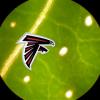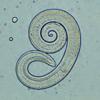Hello, I am new to the Supplement world and I was wondering if someone could direct me to where I can find resources to know what the acceptable limits of contamination are for supplements. I have found random pieces of information so far but nothing concrete. I was able to find an elemental impurity list for metals (https://www.pharmout...b-MacDonald.pdf) that I think is good but I'm not sure of. I have multiple methods such as GC-MS, UV-VIS, ICP-MS if I need to purchase it as well as other small stuff such as pH and microbial testing. I am just relatively lost on where to find acceptable limits of contamination and can't really proceed with starting production until I can assure all of my stuff is passing standards. Thank you!!
- Home
- Sponsors
- Forums
- Members ˅
- Resources ˅
- Files
- FAQ ˅
- Jobs
-
Webinars ˅
- Upcoming Food Safety Fridays
- Upcoming Hot Topics from Sponsors
- Recorded Food Safety Fridays
- Recorded Food Safety Essentials
- Recorded Hot Topics from Sponsors
- Food Safety Live 2013
- Food Safety Live 2014
- Food Safety Live 2015
- Food Safety Live 2016
- Food Safety Live 2017
- Food Safety Live 2018
- Food Safety Live 2019
- Food Safety Live 2020
- Food Safety Live 2021
- Training ˅
- Links
- Store ˅
- More















